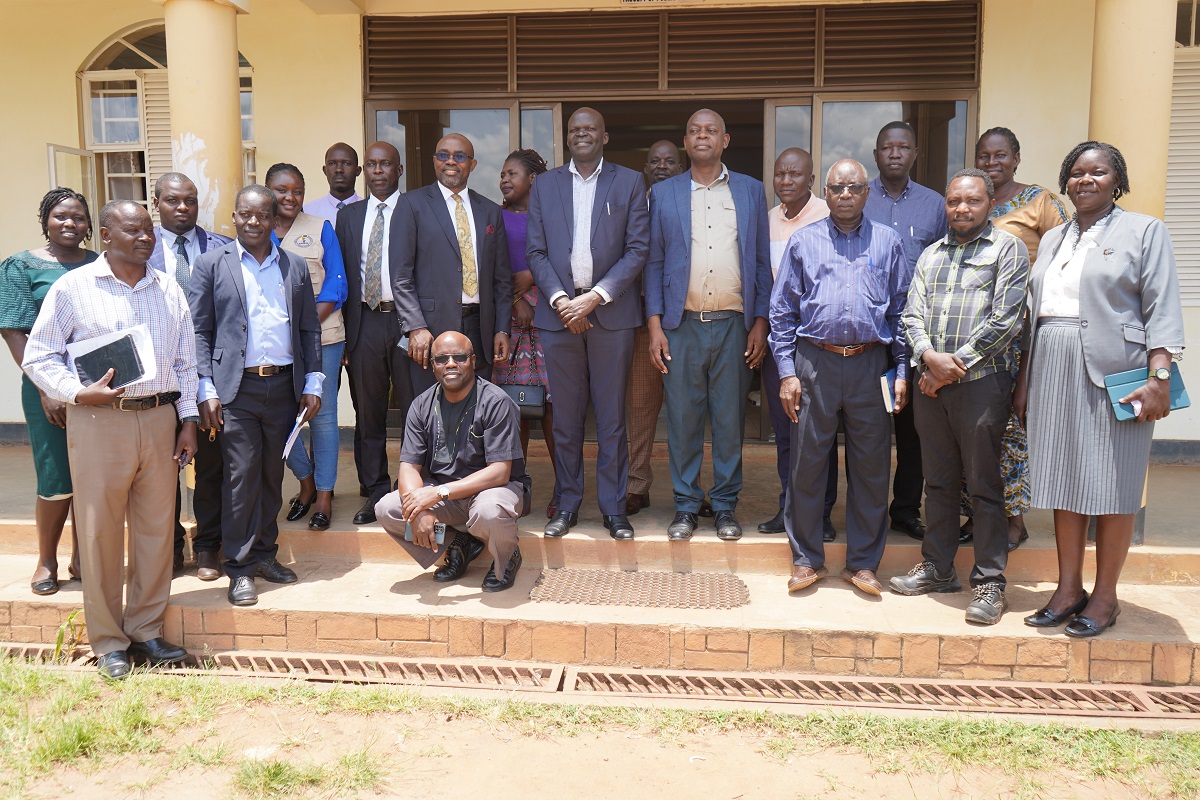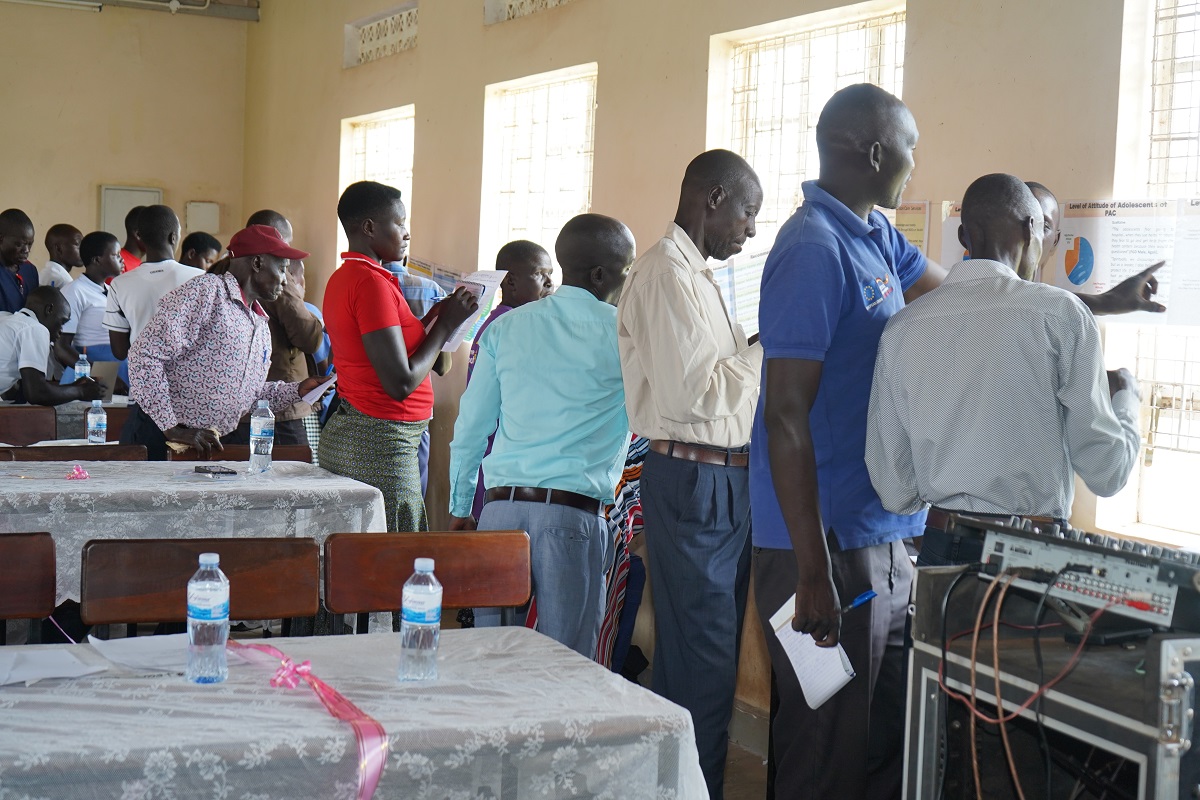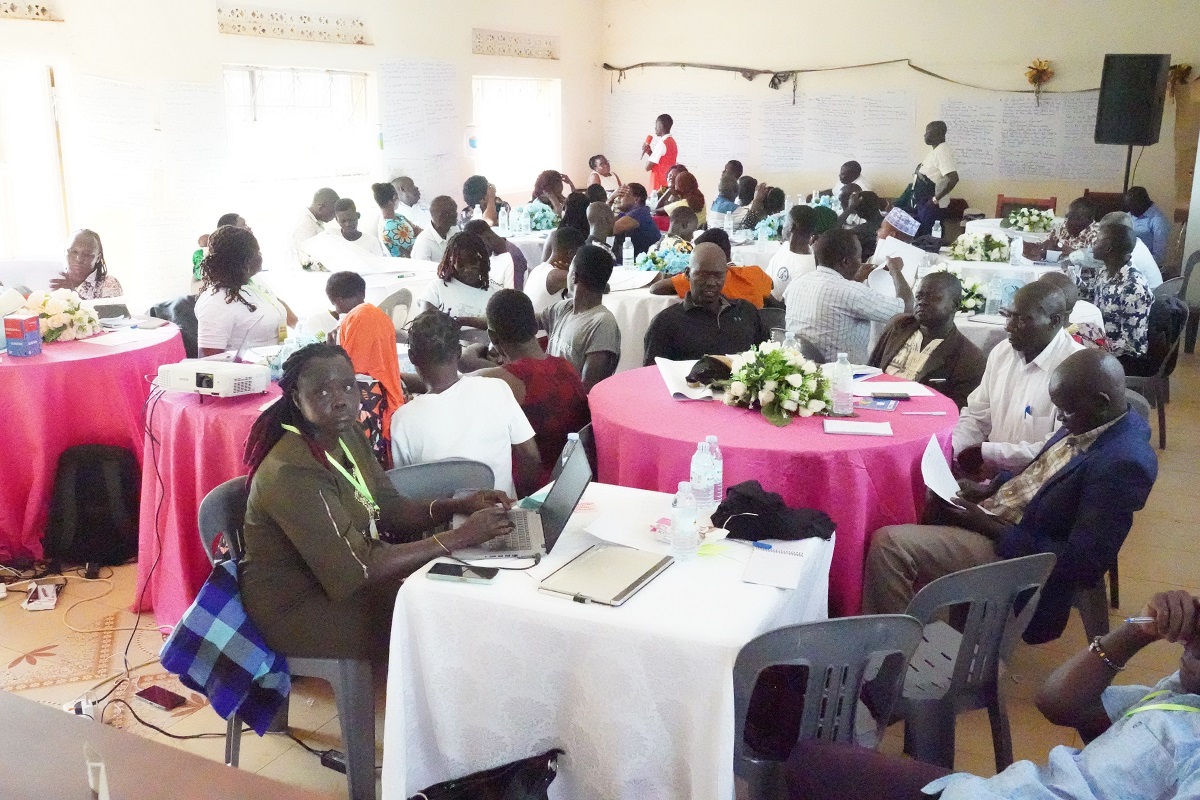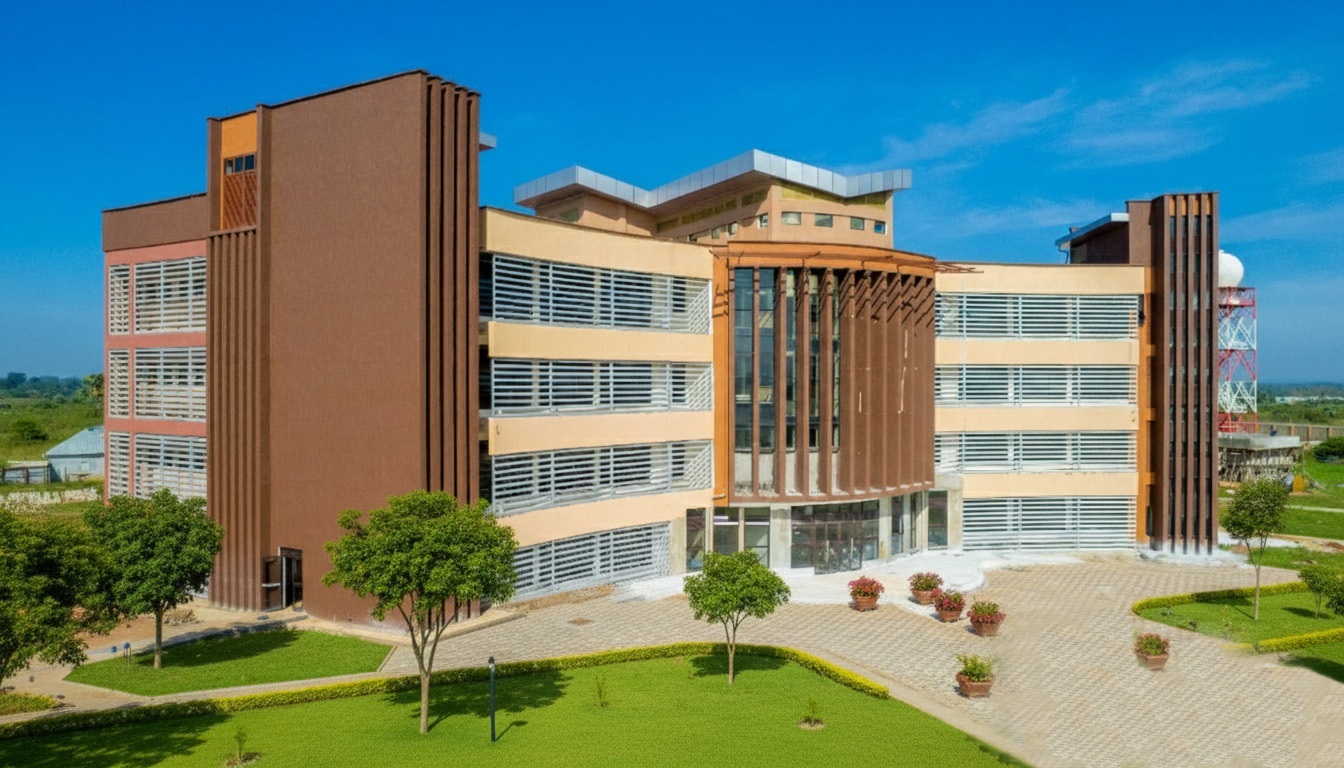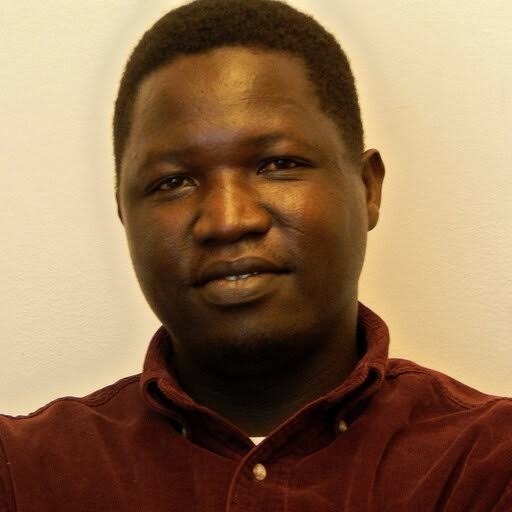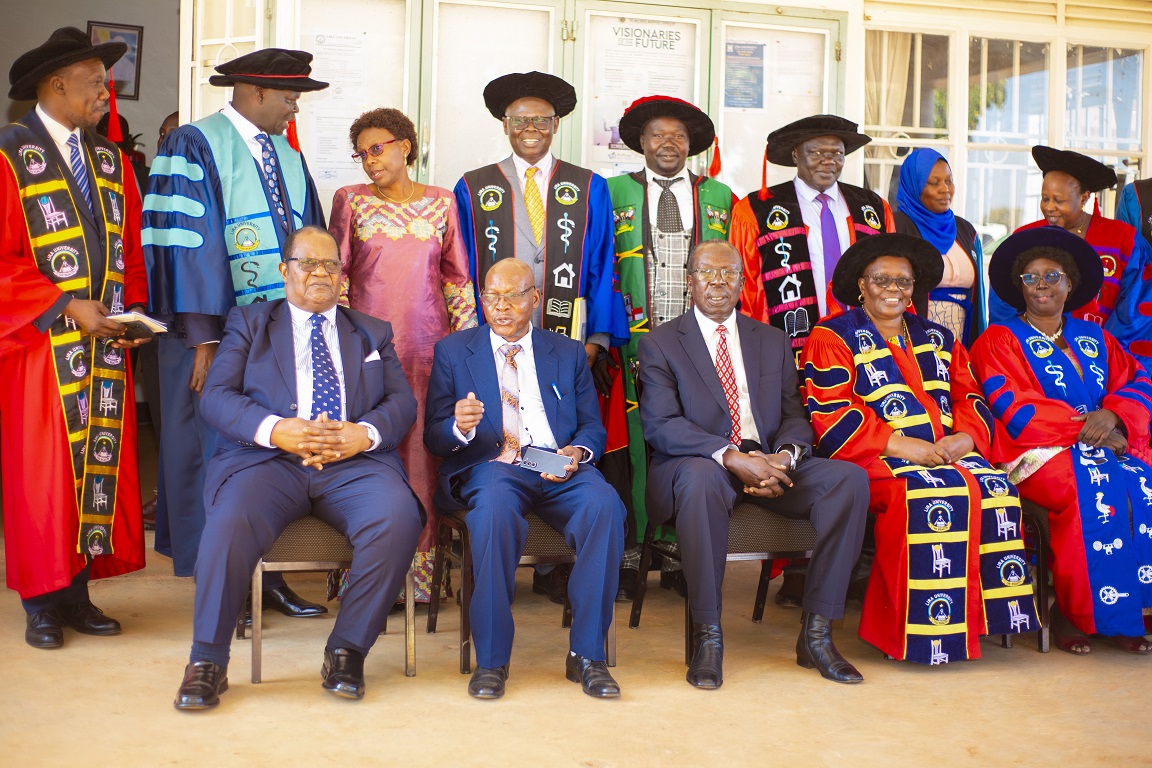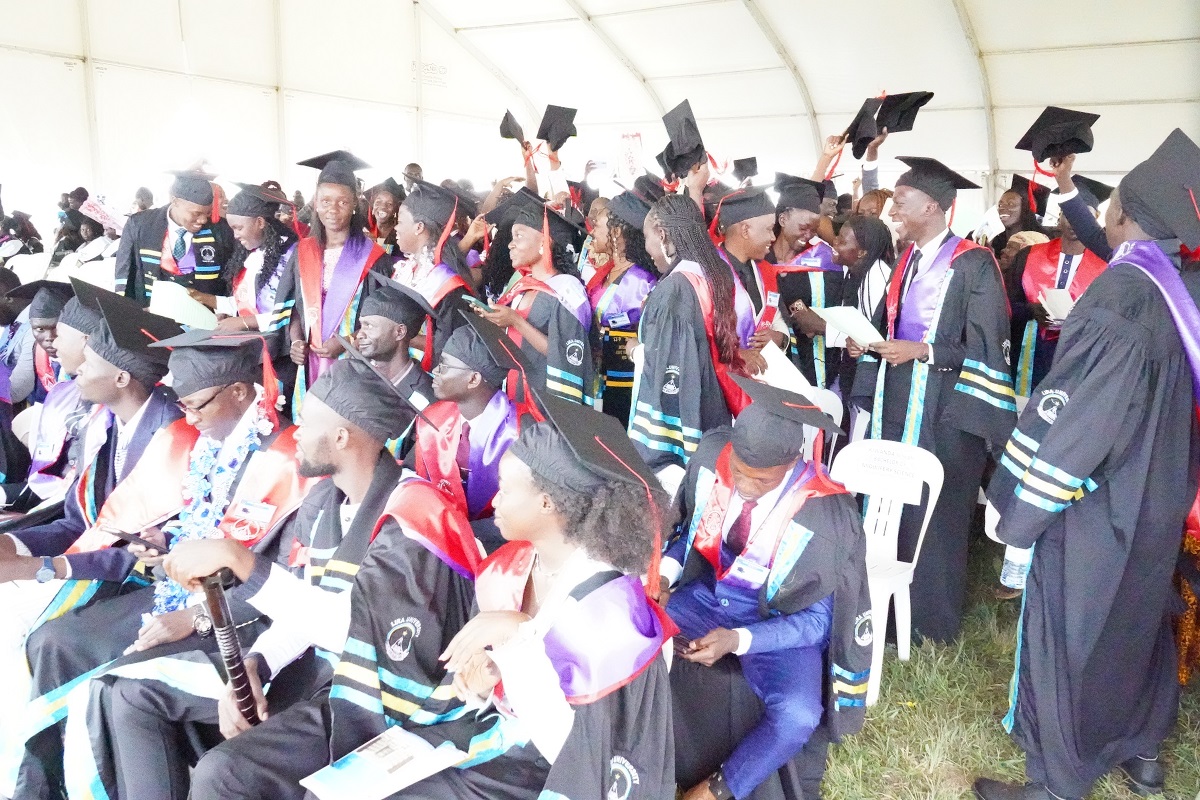By Patrick Opio
Senior Communications Officer
Lira University has launched the Higher Education Access Certificate (HEAC) Programme with 133 students admitted in the running academic year (2025/2026).
While meeting a delegation from the National Council for Higher Education (NCHE) at the Public Health Board room on Thursday (2nd October 2025), the Deputy Vice Chancellor, Assoc. Prof. Okaka Opio Dokotum noted that the University has embedded HEAC programme into its academic system.
At Lira University currently, students are admitted for Biological and Physical sciences. These are A-Level students with one or two principal passes and cannot be directly admitted to pursue degree courses at universities. On successful completion of the course, the students may be admitted for degree programmes of their choices.
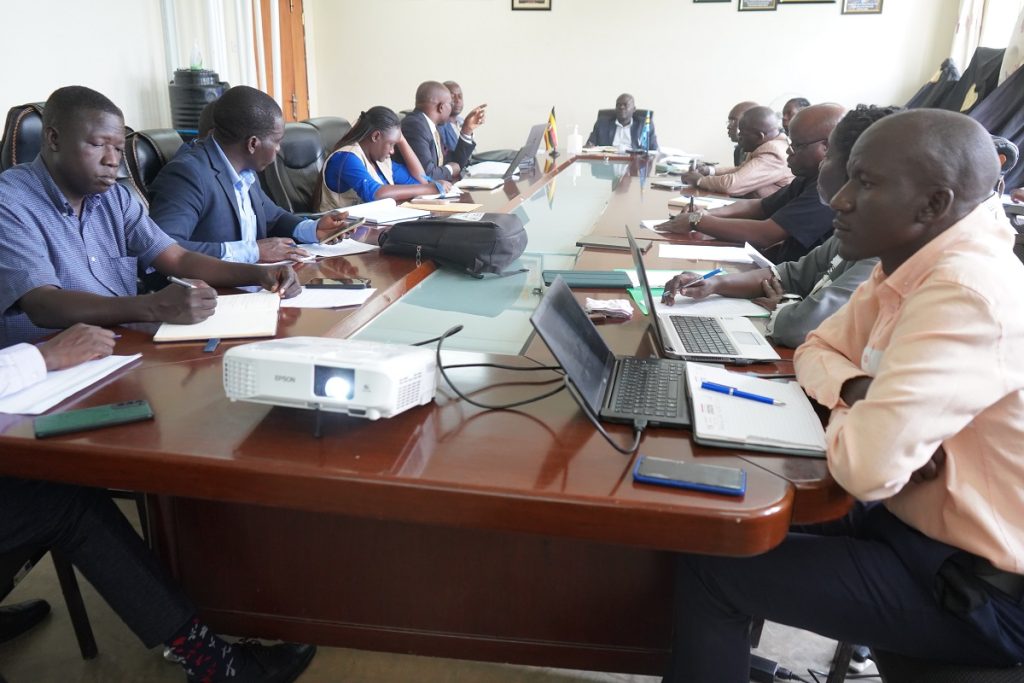
Prof. Okaka Opio Dokotum observed that HEAC programme is a one-year intensive bridging course for students who may lack the qualifications or confidence necessary for university or tertiary studies. He said that HEAC offers a vital second chance for students who may have had challenges in secondary school but possess the aptitude for higher learning.
“HEAC benefits students by providing foundational knowledge, developing essential cognitive and communication skills, offering a bridge to higher education for those with insufficient grades or non-equivalent qualifications, and enhancing career prospects,” Prof. Okaka Opio revealed.
Dr. Vincent A. Ssembatya, the Director Quality Assurance and Accreditation of National Council for Higher Education (NCHE) said that HEAC targets equiping students to meet the basic requirements for degree programs, prepare them for the academic rigor of university, and greater access to a wider range of career paths.
Ssembatya said that the program allows students who may not have attained the minimum grades for entry into degree programs to gain the necessary knowledge and skills.
As a preparation for University, Ssebatya said, students are introduced to the culture of higher education, developing the academic, cognitive, and conceptual skills needed to succeed in university studies.
“The program helps learners identify suitable career progression pathways and make informed choices about their future qualifications,” he added.
Dean Faculty of Education, Dr. Elisabeth Amongi, noted that 24 academic staff facilitating HEAC programme comprise of Associate Professors, Senior Lecturers, Lecturers, Assistant Lecturers and Teaching Assistants.
Present were Chief Quality Assurance Officer, Dr. Peter Owiny, Dean of Students, Ms. Emma Aceng, Assoc. Prof. Awichi(HEAC Facilitator) and Ms Sheilla Amulen, Ministry of Education and Sports specialist, among others.

